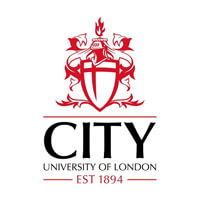fees waived
Civil and Infrastructure Engineering, BEng (Hons), with industry placement
City, University of London, United Kingdom
Subject ranking
UK / ARWU 2024 21st
UK / CUG 2024 32nd
UK / THE 2025 36th
Costs
food & rentS$25.1K / year
Entry requirements
Scholarships
Limited quantity
Information
Code
Intakes
Website (External)
Programmes
Information
Duration
2029
This degree equips students with essential knowledge and skills to design resilient and sustainable civil and infrastructure engineering facilities. It focuses on structural, geotechnical, and hydraulic engineering, emphasizing digital, data-driven approaches for a low-carbon future. Students develop professional skills through three years of study, including innovative design projects, industry-linked guest lectures, access to world-leading laboratories like the Geotechnical Centrifuge Facility, and hands-on materials testing. Optional placements with firms such as Balfour Beatty and AECOM enhance employability.The curriculum builds a strong foundation in mathematics, engineering science, and programming in Year 1, then specializes in geology, soil mechanics, and data analysis in Year 2, and advances to geotechnical, hydraulic, and structural design in Year 3. Assessment combines coursework, examinations, and group projects, with grades contributing to the final classification. Graduates pursue careers in infrastructure, working on projects like HS2, and secure roles with employers such as Atkins and Arup, fast-tracking to Chartered Engineer status.
You’ll develop a strong technical background for civil and infrastructure engineering. Year 1 Common engineering year to build a firm foundation in mathematics, engineering, physics, fluid mechanics, material, electronics and programming. Undertake diverse engineering design projects.
- The Engineering in Society - Social responsibility (15 credits)
- Engineering Design 1 (15 credits)
- Introduction to Mechanics of materials and manufacturing (15 credits)
- Electronics - including circuits, digital and analog electronics (15 credits)
- Introduction to programming (15 credits)
- Engineering Science (15 credits)
- Mathematics 1 (15 credits)
- Introduction to Thermodynamics and Fluid Mechanics (15 credits)
- The Engineer in Society: Sustainability and Circular Economy (15 credits)
- Mathematics 2 (15 credits)
- Engineering Design 2 (15 credits)
- Fluid Mechanics (15 credits)
- Geology and Materials (15 credits)
- Structural and Soil Mechanics (15 credits)
- Sensor Systems, Instrumentation and Surveying (15 credits)
- Data Analysis for Engineers (15 credits)
- Individual project (30 credits)
- The Engineer in society: Infrastructure for Net Zero (15 credits)
- Finite Element Analysis of Structures (15 credits)
- Geotechnical Engineering (15 credits)
- Design of Urban Infrastructure (15 credits)
- Hydraulics and Marine Infrastructure (15 credits)

